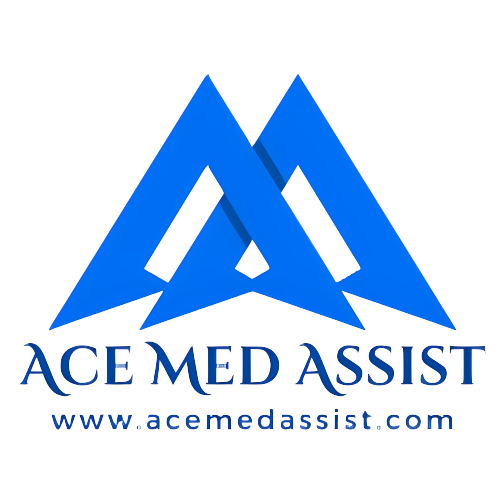Key Features:
- Medical credentialing is a vital process in the healthcare industry that validates the qualifications and competence of healthcare professionals.
- Obtaining medical credentials involves financial costs, time, and effort, which need to be weighed against the potential benefits.
- The ROI of medical credentialing can be substantial, including increased job opportunities, higher salaries, and improved professional reputation.
- Factors such as location, specialty, and market demand can influence the ROI of medical credentialing.
- Investing in medical credentialing can lead to enhanced patient trust, career satisfaction, and personal growth.
- The strength of one’s professional network and connections can impact the ROI by providing more job opportunities and referrals.
- Considering long-term career plans and aligning credentialing efforts with specific goals is crucial for maximizing the ROI.
- Ultimately, medical credentialing is a worthwhile endeavor for healthcare professionals, offering long-term career benefits and personal fulfillment.
In today’s highly competitive healthcare industry, healthcare professionals are constantly seeking ways to enhance their credibility and stand out from the crowd. One way to achieve this is through medical credentialing, a process that verifies the qualifications and competence of healthcare providers.
But is credentialing worth the time, effort, and financial investment? Let’s explore the topic and understand the return on investment (ROI) for healthcare professionals.
What is Medical Credentialing?

Medical credentialing is the process of evaluating the qualifications, experience, and professional background of healthcare providers to ensure that they meet the required standards for practicing medicine.
This process involves verifying education, training, licenses, certifications, malpractice history, and other relevant information. Credentialing is typically conducted by healthcare organizations, insurance companies, and government agencies to ensure patient safety and quality of care.
What are The Benefits of Medical Credentialing Services?

Here are some key benefits of medical credentialing services:
Enhancing Professional Credibility
One of the key benefits of medical credentialing is the enhancement of professional credibility. By going through the credentialing process, healthcare professionals demonstrate their commitment to maintaining high standards of practice.
It can instill confidence in patients, employers, and colleagues, as it assures that the provider has the necessary skills and qualifications to deliver quality care.
Improved Opportunities for Practice
Medical credentialing opens up a wide range of opportunities for healthcare professionals. Many healthcare organizations, such as hospitals, clinics, and medical groups, require providers to be credentialed before granting privileges to practice.
By completing the credentialing process, healthcare professionals gain access to these organizations, expanding their career options and increasing their chances of securing desirable positions.
Insurance Reimbursement
For healthcare professionals in private practice, medical credentialing is crucial for obtaining reimbursement from insurance companies. Insurers often require providers to be credentialed before they can be included in their network of approved providers.
By joining insurance networks, healthcare professionals can attract more patients who have insurance coverage, ensuring a steady stream of income for their practice.
Avoiding Legal and Regulatory Issues
Medical credentialing services can benefit health care providers by a milestone. It also plays a vital role in mitigating legal and regulatory risks for healthcare professionals. By thoroughly vetting a provider’s background, including their malpractice history and disciplinary actions, credentialing helps identify any potential red flags.
It helps healthcare organizations and insurance companies make informed decisions about whether to grant privileges or include the provider in their network, reducing the likelihood of legal issues down the line.
Ensuring Patient Safety and Quality of Care
Patient safety and quality of care are paramount in the healthcare industry. Medical credentialing serves as a safeguard by ensuring that healthcare professionals meet certain standards of competence and professionalism.
By verifying qualifications, licenses, and certifications, credentialing helps protect patients from receiving care from unqualified or underqualified providers. It also promotes ongoing professional development and adherence to best practices, ultimately improving patient outcomes.
The Costs of Medical Credentialing

Obtaining medical credentials along with other services like real time eligibility comes with certain costs that healthcare professionals need to consider. These costs include application fees, licensing fees, ongoing maintenance costs, and potential expenses for updating malpractice insurance.
Additionally, healthcare professionals must invest time and effort in gathering documentation, completing applications, and undergoing background checks. It is important to evaluate these costs against the potential benefits of medical credentialing.
The ROI of Medical Credentialing
The ROI of medical credentialing can be substantial for healthcare professionals. By obtaining credentials, healthcare professionals enhance their professional credibility, which can lead to increased job opportunities and higher salaries.
Credentialing also opens doors to work in prestigious healthcare organizations and grants access to insurance networks, ensuring a steady stream of patients and reimbursement. These tangible benefits contribute to the overall ROI of medical credentialing.
Moreover, medical credentialing offers intangible benefits such as improved patient trust, enhanced reputation among colleagues, and personal growth. The sense of accomplishment and professional satisfaction derived from earning credentials further contribute to the ROI of medical credentialing.
Factors to Consider for ROI

While medical credentialing from rebutable medical billing companies offers numerous benefits, healthcare professionals need to consider various factors when assessing the return on investment.
Time and Effort
Credentialing can be a time-consuming process, requiring healthcare professionals to gather and submit extensive documentation, complete applications, and undergo background checks. Additionally, the credentialing process may involve waiting periods for review and approval. Healthcare professionals must evaluate whether the time and effort invested in credentialing outweigh the potential benefits they will gain in their specific career path.
Financial Investment
Medical credentialing often incurs financial costs. These can include application fees, licensing fees, continuing education requirements, and any necessary updates to malpractice insurance. Healthcare professionals must assess whether the financial investment required for credentialing aligns with their career goals and expected returns.
Career Goals and Market Demands
The ROI of medical credentialing is closely tied to an individual’s career goals and the market demands in their area of practice. For example, healthcare professionals in highly specialized fields or areas with a high demand for their services may benefit significantly from credentialing, as it can lead to increased patient referrals, higher reimbursement rates, and better job prospects. On the other hand, in less competitive markets or for professionals who do not rely on insurance reimbursement, the ROI may be less pronounced.
In our other blog, we discuss how people can avoid critical accreditation mistake, read more on that: Top 5 Medical Accreditation Mistakes to Avoid: Expert Advice.
Factors that Affect the ROI of Medical Credentialing

Location: Different regions may have varying credentialing requirements and levels of competition, impacting the value of credentials.
Specialty: Some specialties may require specific certifications or advanced degrees for career advancement, which can increase the ROI of credentialing.
Market Demand: Professions in high-demand areas or specialties may experience a greater ROI due to increased opportunities and compensation.
Professional Network: The strength of one’s professional network and connections can influence the ROI of credentialing, as it may lead to more job opportunities and referrals.
Professional Goals: Aligning credentialing efforts with specific professional goals can impact the ROI, as it ensures that credentials are obtained to support career objectives.
Experience and Expertise: The level of experience and expertise a healthcare professional possesses can influence the ROI, as credentials can further enhance their value in the industry.
Insurance Reimbursement: For healthcare professionals relying on insurance reimbursement, credentialing can lead to higher reimbursement rates and increased revenue, affecting the ROI.
Long-Term Career Plans: Considering long-term career plans and how credentials fit into those plans can impact the ROI, as credentials may open doors to desired positions or career advancements.
Personal Satisfaction: The personal satisfaction derived from earning credentials and the sense of accomplishment can contribute to the overall ROI, as it enhances professional fulfillment.
Legal and Regulatory Requirements: In certain jurisdictions, medical credentialing may be mandatory to comply with legal and regulatory requirements, making it essential for practicing healthcare professionals.
Conclusion
Medical credentialing is a valuable process that provides healthcare professionals with numerous benefits, including enhanced credibility, expanded career opportunities, insurance reimbursement, legal protection, and improved patient safety.
While the ROI of medical credentialing may vary depending on individual circumstances, it is clear that the process plays a crucial role in advancing the careers of healthcare professionals and ensuring the provision of high-quality care.
By carefully considering the time, effort, and financial investment required, healthcare professionals can make informed decisions about the value of credentialing in their specific situations. Ultimately, investing in medical credentialing can be a worthwhile endeavor for those seeking professional growth and long-term success in the healthcare industry.









